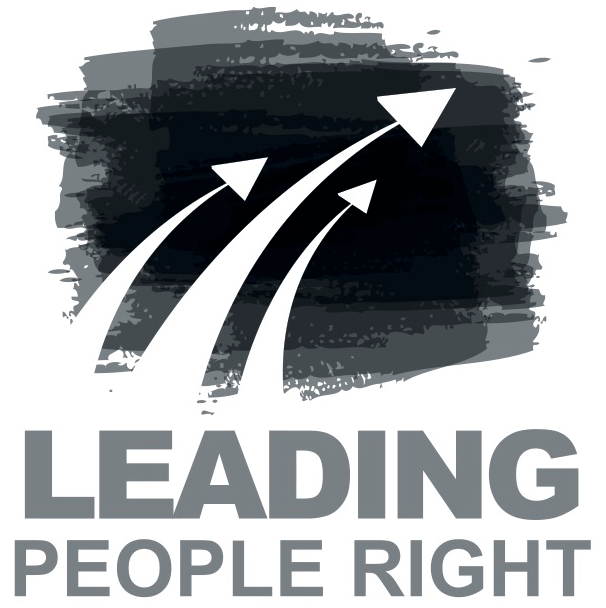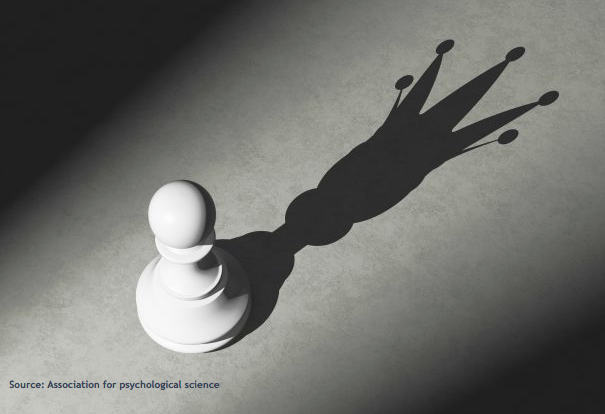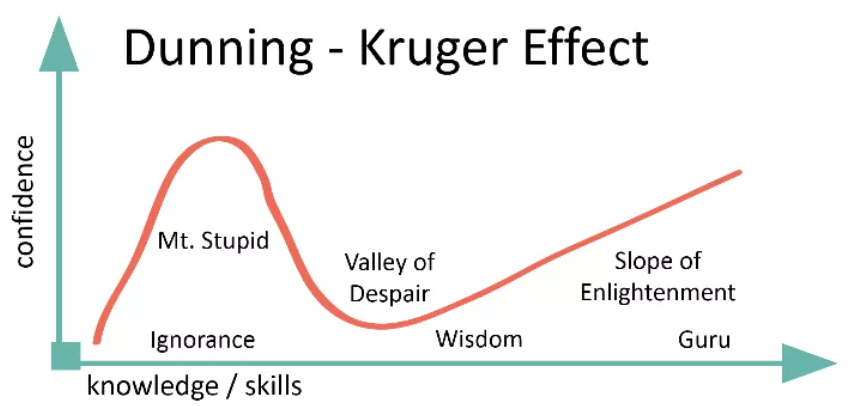Overconfidence is at the root of so many historic failures. Why is it so rampant and impactful. Our hard wiring for overconfidence makes it vital for us to understand the dynamics at work and do everything we can to tame it!
Unfortunately, we are hard-wired to be overconfident.
Note: The danger in writing a piece like this is that it’s immediately passed over by the overconfident. Read it for a friend (wink wink), if you must.
There is a long list of historical events where overconfidence is purported to play a role. Wars, the financial crisis, mega-company failures, fall of political leaders, climate change and sinking of the Titanic. The list goes on.
While (hopefully) less newsworthy overconfidence plays a role in all of our lives. Either we’re under its spell, or it’s affecting us while others are. Overconfidence has consequences.
We need to understand it, be conscious of where it takes up residence in our lives and employ strategies to try and deal with it.
What’s The Problem
Let’s be clear it’s not an absolute, it’s situational. Meaning, overconfidence exists in a given domain or situation.
Most people are not overconfident in every part of their life. Instead, they are a bundle of overconfidence, some amount of balance and a splash of insecurity. Overconfidence emerges in a specific part of life, with a set of decisions, etc.
Author and New York Times journalist David Brooks writes in his piece The Problem With Confidence:
…people are phenomenally terrible at estimating their own self-worth. Some seem to value themselves ridiculously too little while others value themselves ridiculously too highly.
Overconfidence is so insidious, and problematic Daniel Kahneman, Nobel Prize winner made the following statement to The Guardian:
What would I eliminate if I had a magic wand? Overconfidence.
I could keep going.
Dude, You’re Not That Good
I played a lot of golf in my twenty’s. I would go to the local public course and “walk-on.” It means you play with people you don’t know. Sometimes it was a great experience, sometimes not. It was almost always interesting.
So one day I was paired with three guys, two which were quite good so I was excited. The third (I’ll call him #3) thought he was excellent; he was not.
Golfer #3 took great pains to set up for every shot. He would hit, it wouldn’t go at all where he wanted. In turn, he would throw a tantrum. Sometimes swearing or throwing his club or talking under his breath.
This kept up the entire front nine. So, #3 hit another terrible shot, and the drama followed. Finally, one of the other two guys in the foursome reached his limit with all the craziness. He stopped and yelled over to #3:
Dude…you’re not that good, get over it — stop it or get off.
Alrighty, then I thought.
The advice was spot on – #3 wasn’t that good. Overconfidence was his enemy. His expectations of who he thought he was as a golfer and who he was — were about a million miles off.
The drama stopped, and the guy kept playing. Although he didn’t do much better, he played within himself.
I’m guessing that was the best piece of advice he ever got about his golf game.
I never forgot that line. As a prompt or reminder in many situations since that, I have thought for myself and others – dude, you aren’t that good.
How We Are Hardwired To Be Overconfident
The Evolution Of Overconfidence by professors Johnson and Fowler lays out the fundamentals:
Humans exhibit many psychological biases, but one of the most consistent, powerful, and widespread is overconfidence. Most people show a bias towards:
(1) exaggerated personal qualities and capabilities;
(2) an illusion of control over events; and
(3) invulnerability to risk.
Overconfidence amounts to an “error” of judgment or decision-making, because it leads to overestimating one’s capabilities, and/or underestimating an opponent, the difficulty of a task, or possible risks.
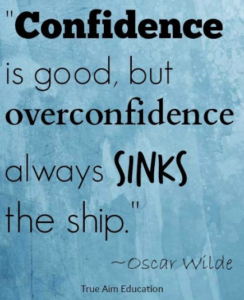
Confidence Is Necessary
Confidence – the sense I am fully capable of this task – is vital for all fields of performance. We step over the line to overconfident when belief in our ability exceeds our actual skills and performance levels.
Overconfidence renders itself in incorrect assessments, unrealistic expectations, and bad decisions.
There are societal pulls and rewards for people who seem all-knowing in contrast to those who demonstrate humility and offer up where they are uncertain.
Between this and our hard-wiring, it’s no wonder overconfidence runs rampant.
A Minute On Underconfidence
Amazon and every “bookstore” is littered with books to help people who lack confidence find a way to overcome and build confidence.
As the book the Confidence Code asserts:
Success, it turns out, correlates just as closely with confidence as it does with competence.
Underconfidence is very real and equally as important to address as overconfidence.
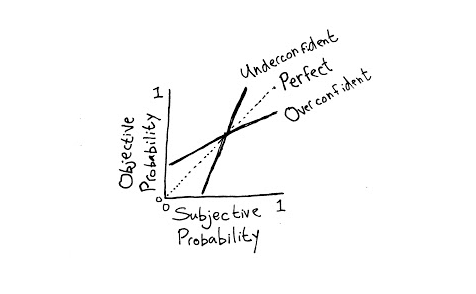
Differences Between Men and Women
The research suggests there are differences between men and women and how they experience and display confidence. Here are two headlines also from the book The Confidence Code:
1. In studies, men overestimate their abilities and performance, and women underestimate both. Their performances do not differ in quality.
2. Do men doubt themselves sometimes? Of course. But they don’t let their doubts stop them as often as women do.
It is worth understanding the research but not being bound by it. Both men and women suffer from over and underconfidence.
Impact Of Learning On Confidence
So let’s focus on learning, that’ll ensure a match of perception and actual skill level, right?
Not necessarily.
As Adam Grant’s tweet below says – confidence increases faster than skill.
Confidence increases faster than skill.
To avoid overconfidence, remember that rapidly gaining expertise isn't the same as becoming an expert.https://t.co/v9emtms8qw pic.twitter.com/5wWYt2VS1s— Adam Grant (@AdamMGrant) March 31, 2018
Beginners or people new to a specific field or activity are particularly susceptible. The Harvard Business Review article Learning A Little About Something Makes Us Overconfident details the reality.
The Dunning Kruger Effect
Two Cornell University psychologists (David Dunning and Justin Kruger) did extensive studies and are responsible for coining the Dunning-Kruger effect – a cognitive bias for people who are incompetent at something but do not recognize it. They also are likely to feel confident in their competence.
Perhaps the biggest challenge, Professor Dunning notes:
The knowledge and intelligence that are required to be good at a task are often the same qualities needed to recognize that one is not good at that task—and if one lacks such knowledge and intelligence, one remains ignorant that one is not good at that task.
What Is Normalization
Another influence to be overconfident is the idea of normalization. The more people do something without suffering an adverse outcome, the harder it becomes for them to remain aware of the risks associated with that behavior.
The best example of this today is texting and driving. Intuitively we all know it is terrible for us. We do it; nothing happens, until it does. Before that, a confidence level builds.
Normalization reveals itself in studies about workplace accidents. Injuries and accidents happen let in a job when confidence runs high, and patience runs short.
What To Do About Overconfidence
All of this is to humbly say that overconfidence is present or at least possible in all of us. We need not drive by it or say it’s the others.
There is no “silver bullet” here. The options:
Own it. Accept the real possibility (reality) that overconfidence exists in one or more areas of your day to day – in an assessment or decisions you make, or opinions you hold, or specific skills you tap.
Work it.
1. Get a steady diet of new insights and ideas that gut check assessments, decisions or opinions that shape you. The more critical the decision, the more views and perspective you need. An article on Theconversation.com Overconfidence Is Responsible For A Lot Of Mistakes Here’s How To Avoid It provides more.
2. Keep learning. A deep commitment to learning and up-skilling is the antidote. This applies to the front end of a learning curve but also as you progress. Why The Best Leaders Empty Their Cup walks through this topic including ideas about where you can purposefully get a fresh perspective.
Repeat.
If you're starting to think you know it all then spend some time with kids – they will take care of that. pic.twitter.com/YEdjKS7Hzw
— Steve Keating (@LeadToday) June 6, 2018
Parting Shot
Find something to trigger or remind you – not to be overconfident, that you may not have it all figured out. Mine is a funny but impactful remembrance of “dude, you aren’t that good.”
What’s yours?
Other resources:
Confidence Code Quiz: Part assessment and part contributing to research.
Why Workplace Accidents Tend To Happen Late In A Project – Harvard Business Review
The Confidence Gap – The Atlantic
